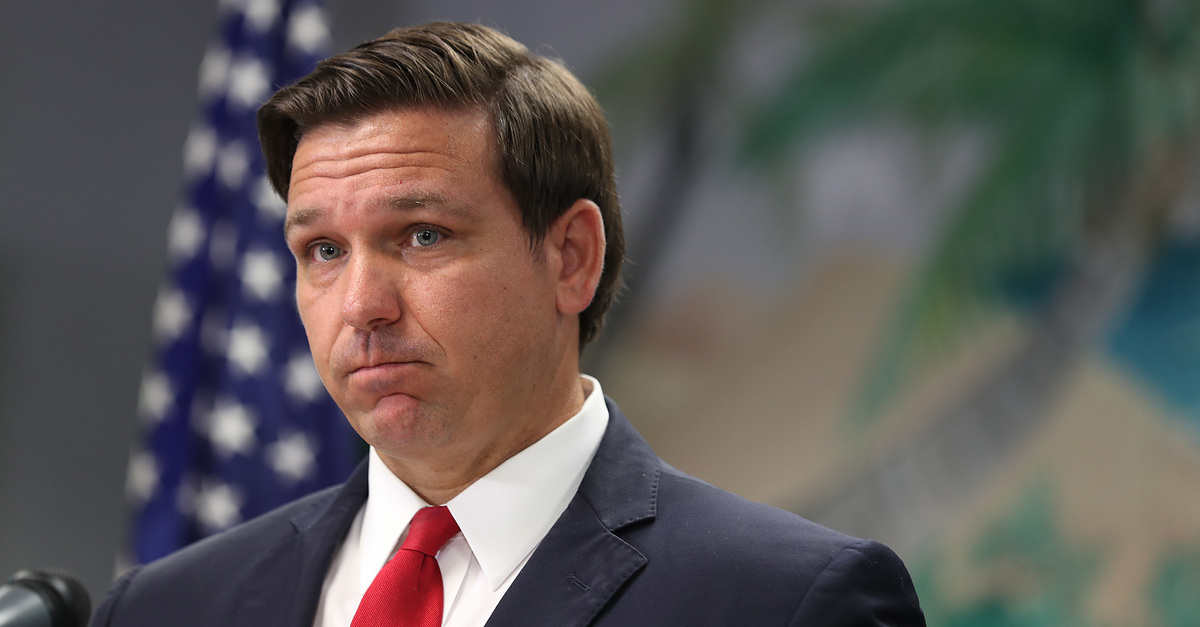
Florida Governor Ron DeSantis (R) picked the wrong justice for the Florida Supreme Court, the Florida Supreme Court determined on Friday in a decision citing late U.S. Supreme Court Justice Antonin Scalia.
In response to a complaint filed by a state legislator, the Sunshine State’s high court ruled that previously-appointed Judge Renatha Francis is constitutionally ineligible to sit on the bench because she has not been a member of the Florida Bar for at least 10 years.
“The essentials of this case are straightforward,” the decision notes. “The resignation of former Justice Robert Luck created a vacancy in office; the constitution gave the Governor sixty days from January 23, 2020, to fill the vacancy by making an appointment from a list of certified nominees; and, at the time of the appointment, the appointee necessarily needed to be constitutionally eligible for the office being filled.”
“Not having been a member of the Florida Bar for ten years, Judge Renatha Francis was constitutionally ineligible for the office of justice of the supreme court on the expiration of the constitution’s sixty-day deadline,” the court’s summary continues. “And Judge Francis remains constitutionally ineligible now.”
DeSantis unsuccessfully tried to argue that he had fulfilled his constitutional obligation by appointing Francis–before backtracking to assert that his initial appointment of the since-disqualified judge was just an announcement of the eventual appointment.
The court didn’t take that argument seriously:
The constitution’s sixty-day deadline to fill this vacancy in office expired many months ago. Yet the Governor has not satisfied his legal obligation to fill the vacancy by making a constitutionally valid appointment. This is true if one views the Governor as having made a null appointment on May 26 (because Judge Francis was and is constitutionally ineligible). It is also true if, as the Governor belatedly suggests in his response to the amended petition, the May 26 “appointment” was a mere “announcement” and not an appointment at all. Either approach leads to the same conclusion: the Governor has not complied with the constitution’s clear commands.
Another argument from DeSantis that was rejected by the court was that their invalidation of Francis “intrudes on the judicial nominating commission’s constitutional prerogatives” of constructing a list of nominees by “taking a red pen” to said list.
“The [commission] itself made the decision to nominate a constitutionally ineligible candidate, and it is responsible for the consequences of that decision,” the court drily observed. The court then turned its attention to Justice Scalia.
“The constitution’s ten-year Bar membership requirement and sixty-day appointment deadline are bright-line textual mandates that impose rules rather than standards and prioritize certainty over discretion,” the court lectured. “To some, enforcing rules like these might seem needlessly formalistic when the result is to preclude the appointment of an otherwise qualified candidate. But ‘formalism,’ as Justice Scalia observed, ‘is what makes a government a government of laws and not of men.'”
The court gave DeSantis three days to comply with their order:
In these circumstances, the constitution and directly on-point precedent dictate the remedy. We hold that the constitution requires the Governor immediately to appoint and commission a constitutionally eligible nominee from among the seven remaining candidates already certified by the judicial nominating commission.
…
The Governor must fully comply with this order no later than noon on Monday, September 14, 2020.
Read the full order below:
Thompson v. DeSantis by Law&Crime on Scribd
[image via Joe Raedle/Getty Images]